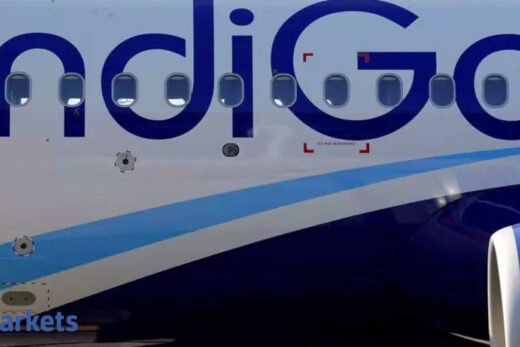Turns out, the hedge fund industry’s swashbucklers haven’t been made obsolete by the machines just yet.
After years of being outgunned and outclassed by computer-driven quantitative strategies, human stock-pickers climbed back on top in 2020. The dizzying gyrations of the pandemic-stricken year humbled even the most sophisticated of quants — notably behemoths Renaissance Technologies and Two Sigma — whose trading models were thrown off by swings their computers had never seen before.
Overall, human-run funds put up some of their best numbers in a decade, with several boldfaced names, including Tiger, Coatue and D1, posting returns in excess of 35 per cent. Whether by luck or by skill, they showed that in this most unusual of years, stock-pickers could still stand up to the seemingly inexorable rise of the machines.
“Stock-pickers had several years of self-inflicted under-performance in the past decade, and the narrative was that computers had defeated humans,” said John Thaler, a longtime equity manager who returned client money in 2015 and this year started a new firm, Hampton Road Capital Management. “Then, the quants hit an air pocket of tough relative performance and this year, long-short equity managers outperformed by an enormous amount.”
Big winners
Many of the top-performing stock-pickers were helped by their investments in tech and private startups, allowing them to easily double the S&P 500 Total Return Index’s 14 per cent gain through November. They included Coatue Management, Tiger Global Management and D1 Capital Partners, whose bets soared along with the Nasdaq and a sizzling market for initial public offerings.
At the same time, macro managers, many of whom have complained about years of low volatility, finally got what they wanted. The fallout from the Covid-19 pandemic triggered the biggest fluctuations in over a decade as the global economy ground to a halt and unleashed an unprecedented amount of monetary support from the world’s central banks. Andrew Law’s Caxton Associates, for example, took advantage and jumped 36 per cent through November.
That same turbulence was the undoing of a whole host of quant funds, which were among the year’s biggest losers. Their computer models rely on finding patterns in historical data, and many had never encountered a once-in-a-century pandemic.
Renaissance, which oversees $60 billion and was founded by former codebreaker Jim Simons, said in a September letter to clients that its losses were due to being under-hedged during March’s collapse and then over-hedged in the rebound from April through June. That happened because its trading models “overcompensated” for the original trouble.
“This year should call into question some quant strategies,” said Andrew Beer, founder of Dynamic Beta. “Building strategies based on five decades of numbers that don’t matter today might well be a fool’s errand.”
Yet even before Covid-19 struck, quant funds were already starting to struggle under the weight of their own success. Several had amassed tens of billions of dollars in assets, meaning market inefficiencies detected by their high-speed computers tended to vanish before they could make much money from them.
 Bloomberg
Bloomberg“What’s gone under the radar is that most quant strategies haven’t made much money in several years,” said Jon Caplis, head of research firm PivotalPath. They make up 55 per cent of funds that have posted losses since 2016, he said. “These strategies were supposed to revolutionize trading but they didn’t do that.”
There were exceptions of course. China was a rare bright spot for quant strategies in 2020. Unlike many of their counterparts in the US and Europe, China’s top-performing quants returned between 20 per cent and 30 per cent above their equity benchmarks, according to Qiu Huiming, founder of Shanghai Minghong Investment Management Co., the country’s largest data-driven manager.
The flagship fund of the $7.6 billion High-Flyer Capital Management, for example, returned 60 per cent through November, triple the benchmark index.
Qiu noted that because Chinese quants are smaller and operate in a less efficient, retail-dominated market, they have “much greater room for alpha.”
Missing out
Some low-tech stock pickers also lost big after missing out on the meteoric rise that followed March’s swoon. London-based Odey Asset Management’s European fund declined almost 30 per cent. Lansdowne Partners’ flagship hedge fund shuttered this year, after a 23 per cent drop in the first half.
And this year, the difference between winners and losers has rarely been so stark. Since 2009, the range of hedge fund returns had been fairly narrow and the average result mediocre. In 2020, however, PivotalPath’s measure of fund dispersion — a gauge of performance variability — hit a record.
“We had every possible volatility scenario over the last five years: high vol, low vol, dislocated markets,” said Jay Raffaldini, global head of distribution for UBS O’Connor. Whatever the strategy, if a firm missed the opportunity to make money, it begs the question, “How viable is your business model?”
Launches
The topsy-turvy year may have even sparked the enthusiasm of traders looking to make a name for themselves.
While pitch meetings went virtual, due diligence became trickier and in-person gut checks were an impossibility, new hedge funds were launched at a surprisingly robust pace. Fifty-eight managers opened firms in 2020, the most in the past six years, with a median of about $55 million raised, according to one industry prime broker. A few traders coming out of the largest and most successful firms even exceeded the billion-dollar mark.
Three of the biggest launches were by stock-pickers.
The largest was Alua Capital Management, co-founded by Viking Global alumnus Tom Purcell and Marco Tablada, formerly of Lone Pine Capital. They started in November with almost $2 billion. Gaurav Kapadia’s XN debuted in July with more than $1 billion in commitments. Ben Jacobs’s Anomaly Capital Management started with $600 million in late October and is expected to amass an additional $1 billion by mid-2021.
 Bloomberg
BloombergExecutives at some of the industry’s most influential firms are also looking forward to 2021. Point72 Asset Management’s global macro chief, Mohammed Grimeh, said recently that things will normalize by summer. He’s been beefing up his team in anticipation of several trading opportunities and weighing potential bets in emerging markets, currencies and commodities.



